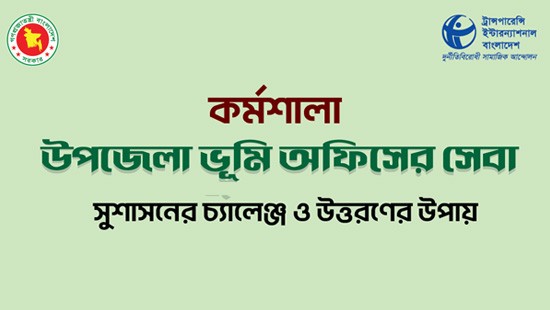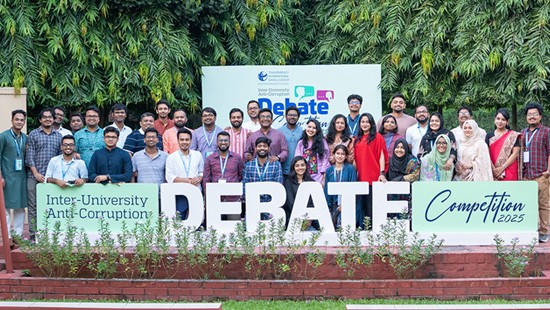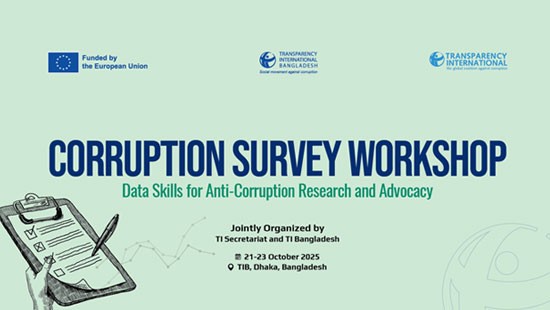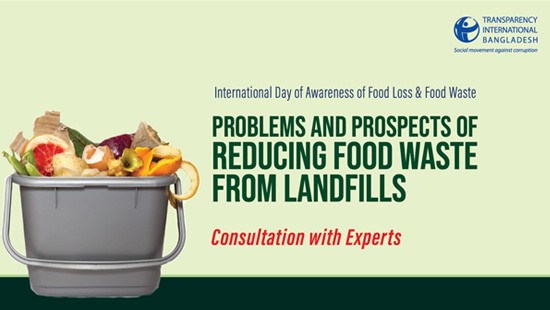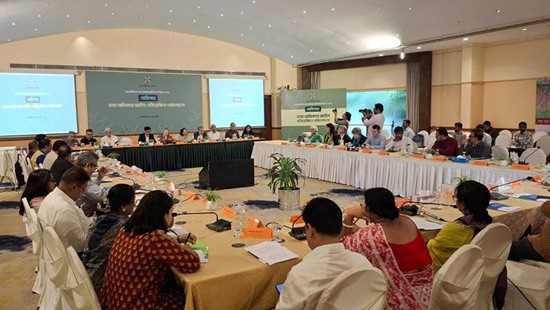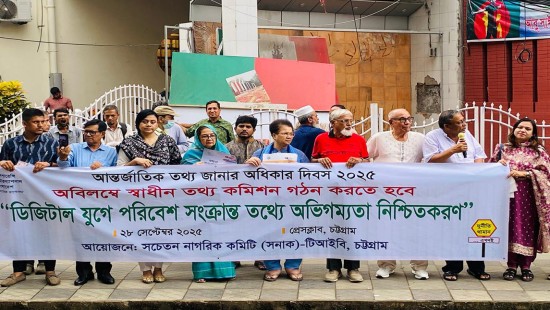Published: 23 November 2024
These days, investigators need more than just traditional investigative skills to find lawbreakers in a world where corruption can hide in complex digital settings. Transparency International Bangladesh (TIB) and the Anti-Corruption Commission (ACC) put on a cutting-edge three-day training that shows how technology could be the best way to fight corruption.
From November 19th to November 21st, 2024, thirty ACC officials attended an intense training that marked a big step forward in how corruption is investigated. The training is specifically tailored for ACC Investigators, with a focus on the development of advanced digital investigation techniques, understanding emerging financial technologies; legal frameworks for digital evidence and practical tools for asset detection.
Digital space: Basic Concepts & Ideas
The training brought together some of Bangladesh's most respected academic experts, each bringing specialized knowledge to the table. Dr. Mohammad Ershadul Karim from the University of Malaya introduced participants to ‘Digital space: Basic Concepts & Ideas’- emphasizing how the digital space has become a critical battleground in anti-corruption efforts.
Digital Forensics
Quazi Mahfujul Hoque Supan, an Associate Professor at the University of Dhaka, presented a comprehensive analysis of digital forensic evidence in investigating corruption and money laundering cases. He explored the complexities of collecting, preserving, and authenticating digital evidence, emphasizing the need for rigorous methodologies, specialized training, and interdisciplinary approaches to effectively track and uncover sophisticated financial crimes in the digital era. He also highlighted the crucial intersection of legal standards, technological expertise, and investigative strategies in modern forensic practices.
Exploring Advanced Digital Tools
The second day participants learned deeper into the complexities of digital financial crime. Dr. Mohammad Ershadul Karim resumed to lead three engaging sessions with the ACC investigators on critical topics and elaborately discussed on the complex digital asset landscape, revealing how block chain technology and cryptocurrencies challenge traditional financial systems. He also emphasized the critical need for adaptive legal frameworks that can address the pseudo-anonymous nature of digital transactions while mitigating financial crime risks, particularly money laundering.
Dr. Karim therefore, intensively took his last session on the comprehensive regulatory approaches that balance technological innovation with vigorous monitoring mechanisms, stressing international cooperation and interdisciplinary strategies to manage emerging financial crime and money laundering risks in virtual assets management.
Mastering Forensic Accounting: Sorting out Financial Crimes
On the last day of the training, Al-Amin, Associate Professor at the University of Dhaka, delivered two critical sessions that dove deep into the world of forensic accounting. His presentations went beyond theoretical concepts, offering participants a comprehensive toolkit for identifying and analyzing complex financial crimes. Through real-world case studies focusing on fraud and money laundering, Al-Amin provided participants with a detailed understanding of financial investigation techniques and said, "Understanding the subtle patterns of financial fraud is crucial and it’s not just about numbers, but about understanding the story behind those numbers."
Practical Skills and Open Data Techniques
Additionally, Mohammad Tauhidul Islam, TIB's Outreach and Communication Director led an interactive session at the final day of the training. He demonstrated cutting-edge techniques for asset detection using open data, giving participants practical insights they could immediately apply in their investigative work.
Looking Ahead
The training concluded with a powerful participant feedback session that highlighted the workshop's impact. ACC officer Syed Nazrul Islam highlighted that these programs are crucial in building a corruption-free society. "We're not just learning skills," he said, "we're building a more transparent future for Bangladesh." Another ACC investigator Sazzad Hussain expressed confidence in how the new knowledge would enhance their investigative and legal process skills. Last but not the least, ACC officer Sylvia Ferdous emphasized the need for continued such specialized training because, this training equipped them with strategic approach to combating corruption in an increasingly digital world.
Dr. Sumaiya Khair, TIB's Adviser, thanked participants and encouraged them to apply their new skills in the ongoing fight against corruption. TIB's Executive Director, Dr. Iftekharuzzaman, made a compelling statement: "Our ultimate goal is to make ourselves unnecessary—to create an environment so transparent that corruption cannot thrive."
Nonetheless, by equipping ACC investigators with advanced technological skills, TIB and ACC are creating a robust defense against corruption. At the end, the workshop's certificate ceremony was more than a formal ritual—it was a symbolic commitment by each participant to use their new skills in service of transparency and accountability.








